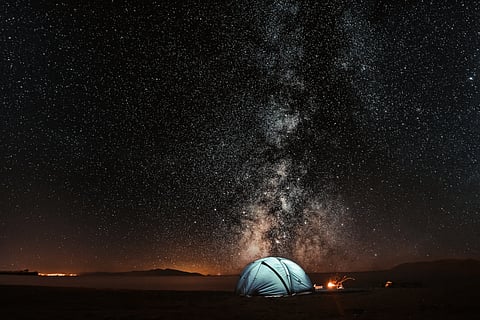Tips And Tricks A First Time Camper's Guide
Camping, an age-old tradition loved by adventure enthusiasts, is a great opportunity to disconnect from the hustle and bustle of daily life and enjoy the tranquillity of the great outdoors.
The tradition of camping has deep roots in human history, dating back to ancient civilizations. However, in the late 19th century, camping gained prominence in America, coinciding with the rise of the conservation and preservation movements. Influential figures such as President Theodore Roosevelt and naturalist John Muir popularized camping to connect with nature, leading to the establishment of national parks and protected areas across the United States. Since then, camping has evolved into a cherished recreational activity enjoyed by millions of people worldwide.
Benefits of Camping
Camping offers many benefits for both physical and mental well-being. Spending time outdoors promotes relaxation, reduces stress, and enhances overall mood. Also, while camping, you can always explore hiking, fishing, and wildlife observation. Solo Camping, for instance, fosters a sense of adventure, self-reliance, and appreciation for the natural world.
Essential Tips for First-Time Campers
Selecting the Right Gear
When selecting the right gear for camping, there are several essential items to consider. Firstly, choose a tent that suits the size of your group and the weather conditions you expect to encounter. Ensure it is waterproof and easy to set up for convenience and protection. Additionally, opt for sleeping bags that are appropriate for the temperature range of your camping destination to ensure a comfortable night's sleep.
Cooking equipment is another crucial aspect of camping gear. Pack a portable stove, cooking utensils, and food storage containers to prepare meals during your outdoor adventure. Remember to bring reliable, battery-powered lanterns or headlamps for illumination at night, ensuring adequate lighting in your campsite. Lastly, pack appropriate clothing for varying weather conditions, including rain gear and sturdy footwear, to stay comfortable and protected throughout your camping trip.
Ideal Packing List
- Tent with stakes and guylines
- Sleeping bags and sleeping pads
- Camping stove and fuel
- Cookware and utensils
- Food and water supplies
- Clothing (including layers, rain gear, and extra socks)
- Hiking boots or sturdy footwear
- Insect repellent and sunscreen
- Lanterns or headlamps with extra batteries
- Personal hygiene items and toiletries
- First aid kit with necessary medications
- Maps, compass, or GPS device
- Camping chairs or seating options
- Entertainment (books, cards, musical instruments)
- Garbage bags and zip-lock bags for storage
- Fire starters and matches
Responsible Camping
Responsible camping practices are essential for preserving the environment and ensuring a positive camping experience for everyone. One fundamental principle is to "Leave No Trace." Follow local campfire regulations, using designated fire rings when available, and always ensure the fire is fully extinguished before leaving your campsite.
When it comes to wildlife interaction, it's crucial to maintain a safe distance. Avoid feeding wildlife, as it can disrupt their natural behaviours and create potential risks. Store your food securely to prevent animal encounters, reducing the likelihood of conflicts. By being mindful of your actions and their impact on the environment, you can contribute to conserving the natural surroundings.
Safety Considerations
A well-stocked first aid kit should be an essential part of your camping gear, including bandages, pain relievers, and any necessary personal medications. Additionally, bring navigation tools such as a map, compass, or GPS device to navigate unfamiliar areas confidently.
Staying informed about the weather forecast is crucial for camping preparedness. Keep track of any changes in weather conditions and pack accordingly to ensure your safety and comfort. If you plan to venture into remote areas, carrying emergency communication devices like satellite phones or personal locator beacons is advisable. These devices can provide a lifeline in emergencies, ensuring you can reach out for help if needed.
Cover Photo Credits Unsplash
ALSO READ Birding In Bodoland


